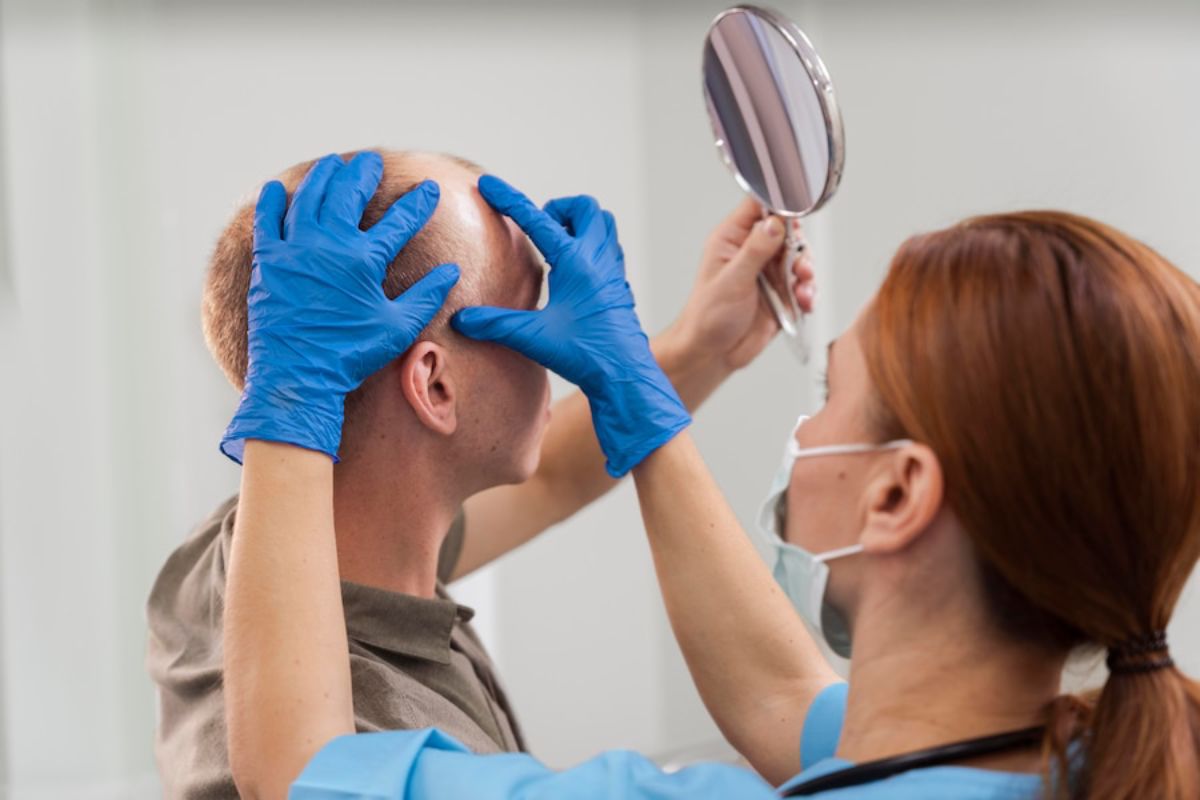Hair loss is a common issue for many men, but with so many treatments available, how can one know which advice to trust? The abundance of myths and misinformation can make distinguishing between effective treatments and mere folklore complex. In this article, we’ll debunk some common myths and provide clear, factual information on hair loss treatment, especially for men.
Myth 1: Only Older Men Experience Hair Loss
It’s a widespread belief that hair loss is a problem exclusive to older men. However, many young men start experiencing thinning hair or bald spots in their twenties. So, hair loss treatment for men is relevant at any age, and early intervention can be beneficial.
Myth 2: Wearing Hats Causes Hair Loss
Another common myth is that wearing hats frequently can lead to hair loss. This belief likely stems from the idea that hats can obstruct blood flow to the scalp. However, this is not the case. Hair loss is more closely linked to genetics and hormonal changes than the type of headwear one chooses. Therefore, men can confidently wear hats without fearing it will worsen their hair loss.
Myth 3: Hair Loss Treatments Are Only Effective If Started Early
While early intervention can help slow down hair loss, it is not the only factor determining the effectiveness of treatment. Modern hair loss treatments can work at various stages of hair loss. Whether a man is just starting to notice thinning hair or has been dealing with it for years, there are options available that can help. It’s never too late to seek advice and begin treatment.
Myth 4: Natural Remedies Are Always Effective
Many people turn to natural remedies to find a cure for hair loss. Popular natural treatments include essential oils, onion juice, or herbal concoctions. While some of these remedies may improve scalp health, limited scientific evidence supports their effectiveness in promoting hair growth. Men looking for reliable hair loss treatment should consider treatments backed by scientific research rather than relying solely on natural remedies.
Myth 5: Hair Transplants Are the Only Permanent Solution
Hair transplants are often seen as the ultimate solution to hair loss. While they can be highly effective, they are not the only permanent solution. Advances in medicines have led to the evolution of other long-term treatments that do not require surgery. Options like medication and laser therapy can also provide lasting results. Men should explore all available options and consult a healthcare professional to find the best treatment.
Myth 6: Stress Is the Primary Cause of Hair Loss
Stress is often blamed for the loss, and while it can contribute to the condition, it is rarely the primary cause. Genetic factors and hormonal changes play a much more significant role in male pattern baldness. Stress can exacerbate hair loss, but addressing it alone is unlikely to stop hair thinning. Effective hair loss treatment for men typically involves addressing the underlying genetic and hormonal factors.
Myth 7: All Hair Loss Treatments Work the Same for Everyone
One-size-fits-all solutions rarely apply to hair loss treatments. Each individual’s hair loss situation is unique, and treatments for one person may not work for another. Factors such as the cause of loss, the stage of loss, and individual health conditions all play a role in determining the best treatment plan. Consulting with a specialist can help modify a treatment approach to individual needs.
Myth 8: Dietary Changes Can Reverse Hair Loss
While a healthy diet is imperative for overall well-being, it is unlikely to reverse hair loss. Nutritional deficiencies can contribute to hair thinning, but addressing these deficiencies typically helps improve the quality of existing hair rather than promoting new growth. Effective hair loss treatment often requires a combination of approaches, including medication and lifestyle changes.
How to Identify Effective Hair Loss Treatments:
- Consult a Specialist: Seek advice from a dermatologist or trichologist specialising in hair loss. These professionals can provide a personalised diagnosis and recommend the most productive treatment modified to individual needs.
- Research Treatments: Look for treatments backed by scientific studies. Reliable treatments have undergone clinical trials with evidence supporting their effectiveness, ensuring you choose a method that works.
- Evaluate Reviews: Read reviews from other men who have used the treatment. Personal experiences can provide insight into the effectiveness and potential side effects, helping you make an informed decision.
- Monitor Results: Track progress and adjust treatment as needed. Recording your hair growth and any changes allows you to evaluate the effectiveness of the treatment and make necessary adjustments.
- Avoid Fads: Avoid unverified, trendy treatments. Popular treatments without scientific backing often fail to deliver results and can sometimes cause more harm than good. Stick to proven methods.
Going through the world of hair loss treatment can be challenging due to the numerous myths and misconceptions. It’s crucial to rely on scientifically backed information and seek professional advice. Hair loss treatments are diverse and can be effective at various stages, offering hope to many men dealing with this issue. By ignoring myths and focusing on proven methods, men can find the right solution to manage and treat hair loss effectively.















